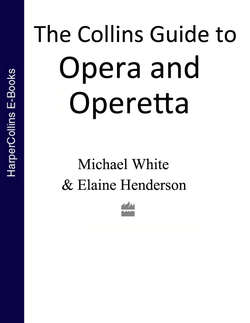Читать книгу The Collins Guide To Opera And Operetta - Michael White - Страница 22
ОглавлениеHector Berlioz
(1803–69)
Les Francs-Juges (1826)
Benvenuto Cellini (1828)
Les Troyens (1858)
Béatrice et Bénédict (1862)
Berlioz was a dreamer of dreams in the grand Romantic tradition. The son of a French country doctor, he originally studied medicine but abandoned it for music – largely under the spell of Beethoven, who ranked alongside Shakespeare, Virgil and Goethe as the composer’s creative idol. Other idols included Harriet Smithson, a Shakespearian actress who became the governing inspiration for Berlioz’s vividly (some might say unhealthily) imagined Symphonie Fantastique in 1830, his first enduringly great work. Symphonic and choral scores followed – Harold in Italy, the Requiem, Roméo et Juliette, the Te Deum – and they became the basis of his fame, which originated abroad rather than in France. But his chief interest was always the stage, and the tragedy of his creative life was that his operas failed to find support. Les Francs-Juges was never performed, Benvenuto Cellini was taken off after four nights and only the last two Acts of Les Troyens reached the stage. Béatrice et Bénédict, which was welcomed in Germany, had no Paris production until well after Berlioz’s death. La Damnation de Faust (1846) is sometimes staged as an opera, but was written as a concert work and is probably best left as such.
